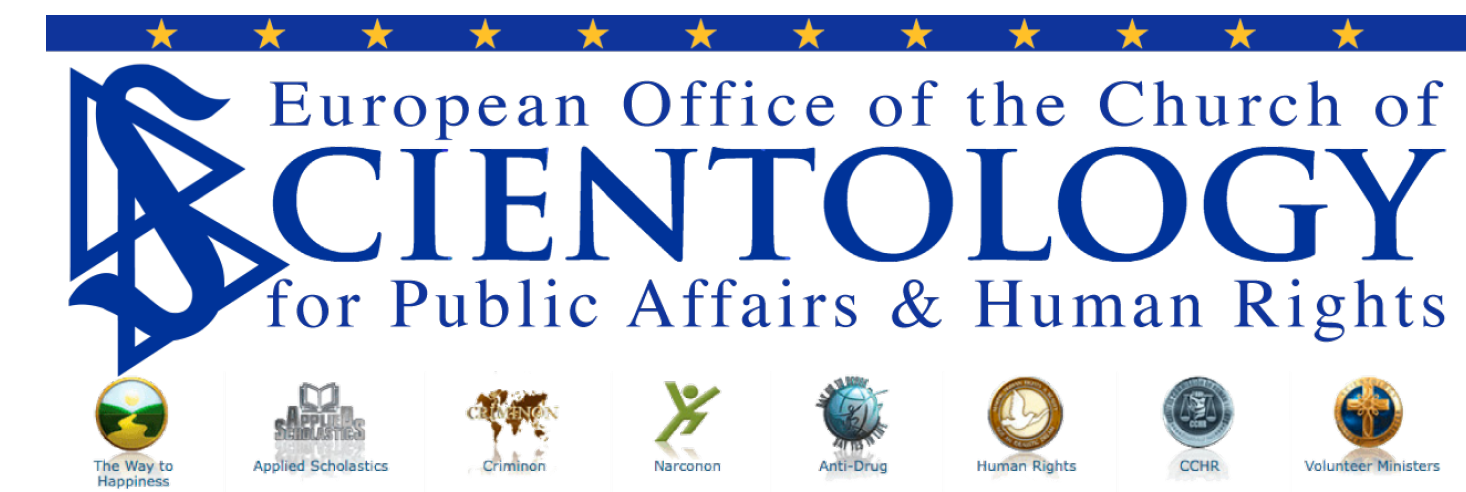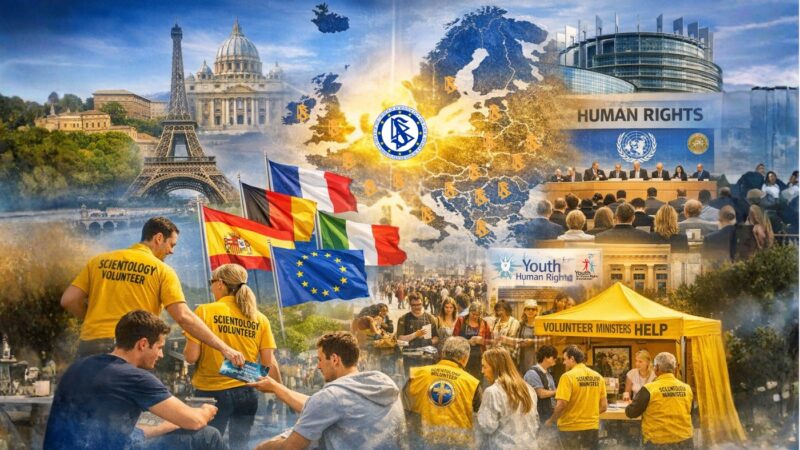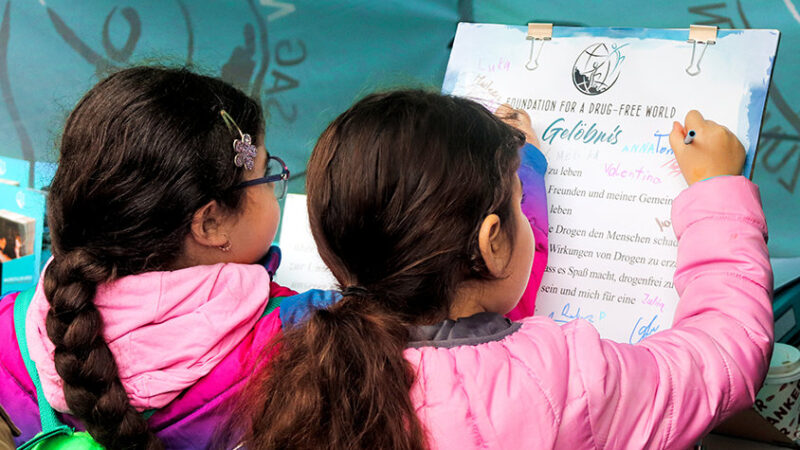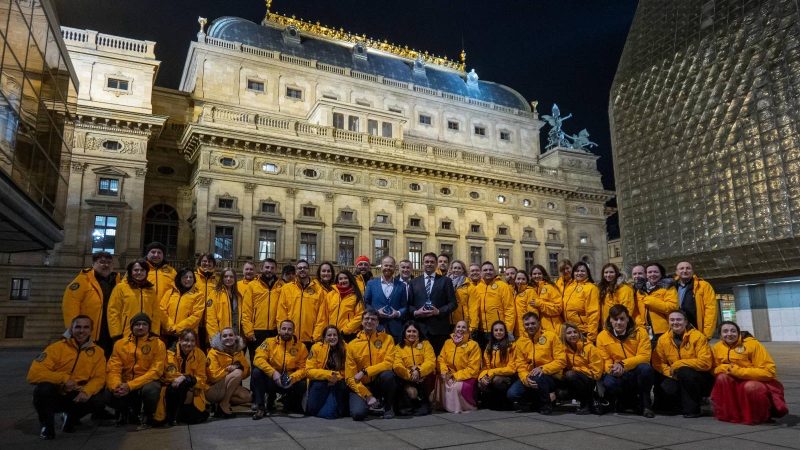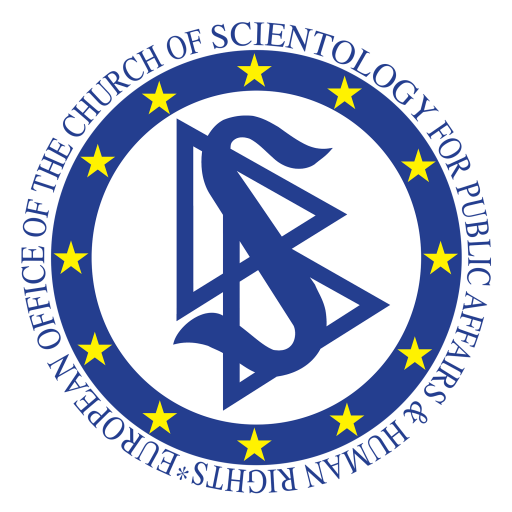Religions without agreements in Italy: the knot of the new creeds and the challenge of Article 8 of the Constitution
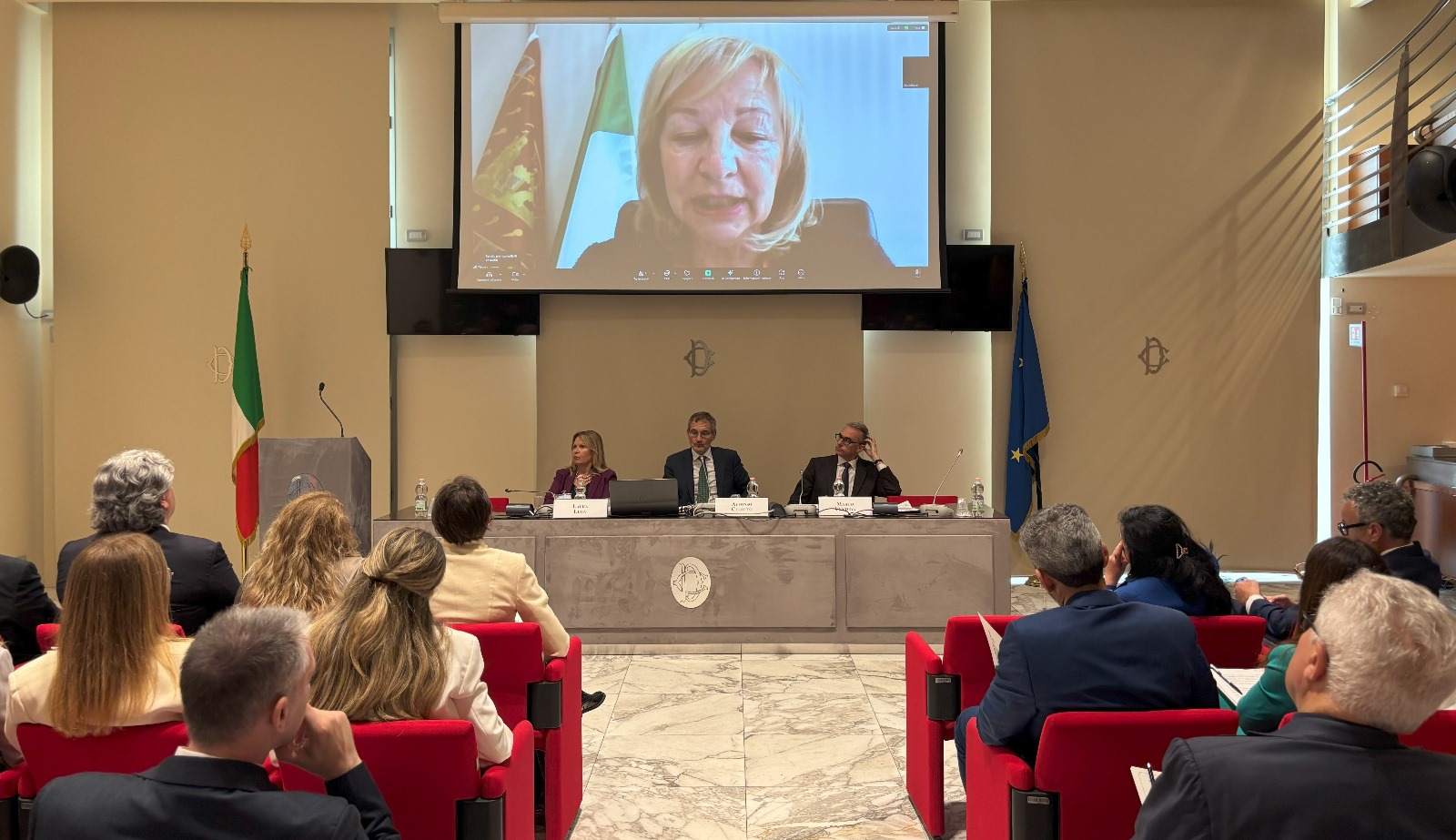
Views: 55
The conference held on 27 May in the Matteotti Room of the Chamber of Deputies brought together experts and religious representatives to discuss the implementation of Article 8 and the inadequacy of the 1929 Law on “permitted religions”.
The conference “Without agreements (Senza Intesa): new religions put to the test by Article 8 of the Constitution” was held in the Matteotti Hall of the Italian Chamber of Deputies. The conference was organised by the National Church of Scientology of Italy with the technical support of the Observatory on Religious Bodies, Ecclesiastical Heritage and Non-Profit Organisations of the University of Campania “Luigi Vanvitelli”.
Religions today
While it is true that not all religious groups in Italy are interested in availing themselves of paragraph 3 of Article 8 of the Constitution, which provides for an agreement between a religious denomination and the State, it is equally true that others would like to have an equal and legally binding relationship with it.
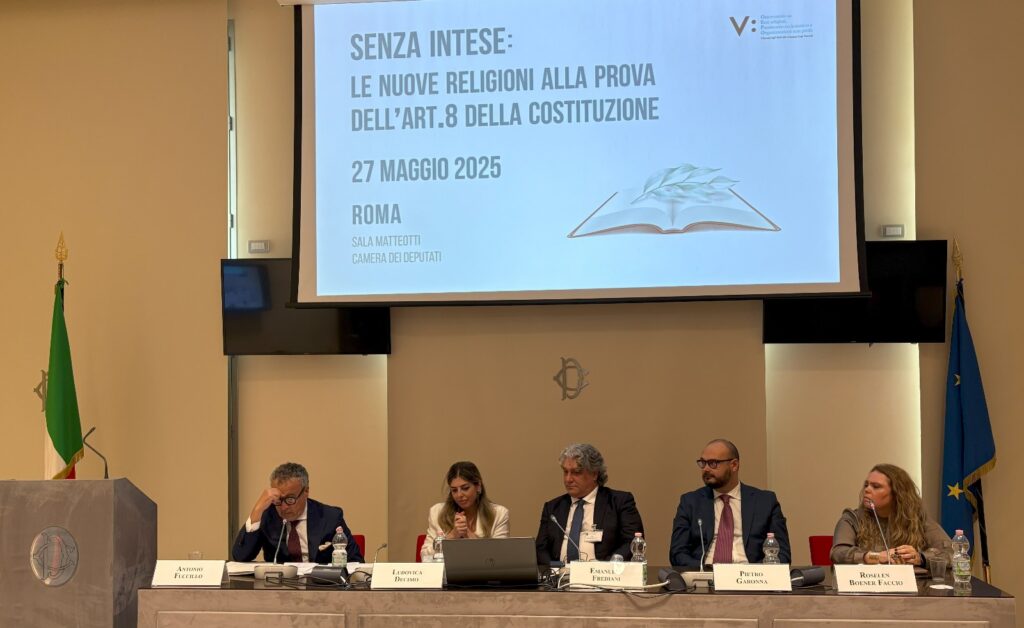
These issues were discussed by scholars and religious representatives at the conference held in the Sala Matteotti, which began with institutional greetings from Hon. Paola Boscaini and Hon. Paolo Barelli, leader of Forza Italia in the Chamber of Deputies. After expressing her heartfelt thanks to the organisers, Hon. Boscaini offered her availability for future collaborations on the theme of religious freedom.
The opinion of experts on the subject
Professor Alfonso Celotto, full professor of constitutional law at Roma Tre University and expert on bureaucracy and institutions, reiterated the need to move beyond the concept of “tolerance” expressed in the 1929 Law on “permitted religions” in order to achieve full freedom and equality for different religious expressions. To emphasise this concept, he recalled the words of Hon. Ruggero Grieco, one of the founding fathers:
‘…we also know that there is another good that is above our miseries and our worries, another good that is above all the directions of all parties, of all the bell towers of all the churches in the world, another good that is above all the highest mountains on earth and that is called freedom. And this must be respected.’
Hon. Ruggero Grieco
Prefect Laura Lega, State Councillor and former head of the Department for Civil Liberties and Immigration, then outlined the procedure and controls provided for by law for the process leading to the agreement between the State and a religious denomination and what it can entail once the agreement has been ratified. The State Councillor concluded her speech by expressing the hope that the scientific debate would be broadened and that this event would be followed by others, open not only to the academic world and professionals, but also to those who live in religious denominations and feel the need to contribute ideas, on the assumption that freedom of religion is one of the major issues, not only in our country, but globally.
A constantly evolving system
The speech by Prof. Marco Ventura, full professor of Canon and Ecclesiastical Law at the University of Siena, recalled that
“the system of rules governing religion must continue to evolve in accordance with the spirit of the Constitution and the dynamism that has characterised these decades of republican experience, in particular the forty years since the reforms of 1984-85. Civil and religious authorities, faith communities and civil society must continue to develop this spirit with this dynamism, taking responsibility for the search for instruments that are increasingly adapted to individual and collective needs, in loyal collaboration between public authorities and religious denominations”.
Prof. Marco Ventura
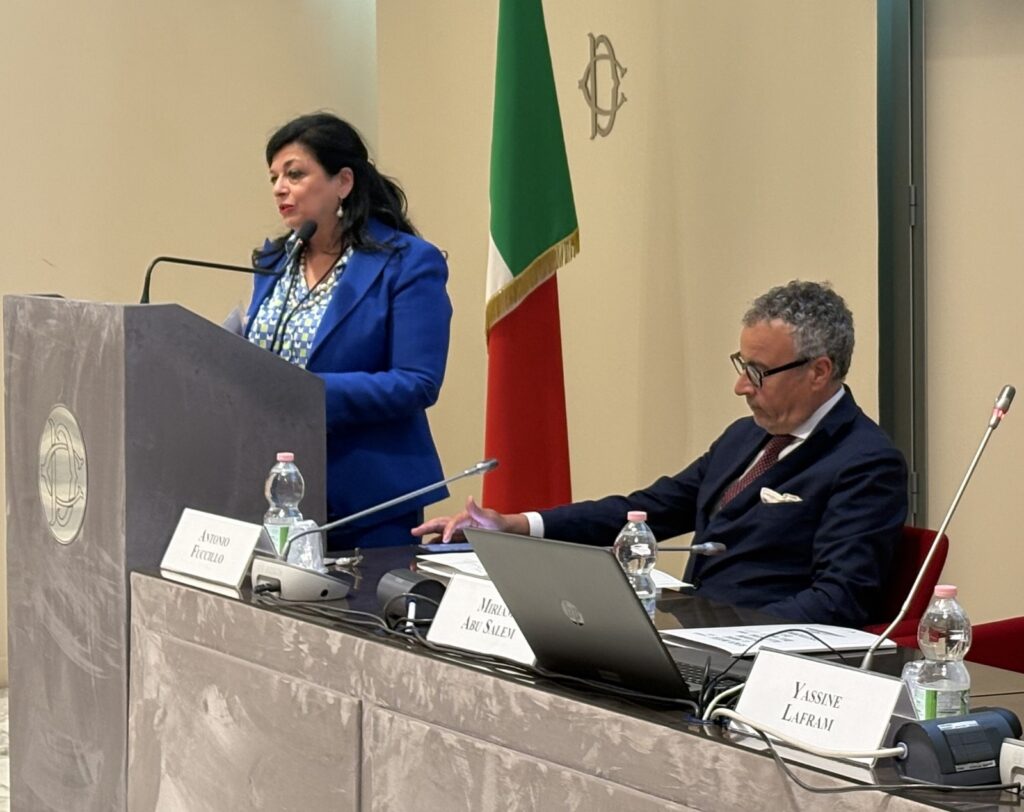
Maria D’Arienzo, full professor of Law and Religion at the University of Naples Federico II and president of ADEC (Association of University Professors of the Legal Discipline of the Religious Phenomenon), emphasised that the fact that some confessions have an agreement with the state cannot and must not be a reason to discriminate against those that do not yet have one, since paragraph 1 of Article 8 establishes that “All religious confessions are equally free before the law”, whether they have or do not yet have or do not wish to enter into an agreement.
Comparisons
After the experts had spoken, a round table discussion was held, moderated by Prof. Antonio Fuccillo, full professor of Ecclesiastical and Intercultural Law at the University of Campania “Luigi Vanvitelli”, which was attended by academics and representatives of various religious groups, reflecting the rich plurality that has characterised Italian society for decades.
Miriam Abu Salem, researcher in law and religion at the University of Campania “Luigi Vanvitelli”, outlined the problems and possible prospects for the recognition of Islam in Italy.
Francesco Sorvillo, associate professor of Law and Religions at the University of Campania ‘Luigi Vanvitelli’, focused on the problems of new religions and how they can be recognised through new legal instruments.
Rogéria Azevedo, PhD student at the University of Campania ‘Luigi Vanvitelli’, illustrated the situation of Brazilian religions in Italy.
Ludovica Decimo, associate professor of Ecclesiastical Law and Canon Law at the University of Sassari, outlined the process of the Apostolic Church’s request for recognition in Italy and the excessively long time it took.
Representatives of the religious communities present at the event
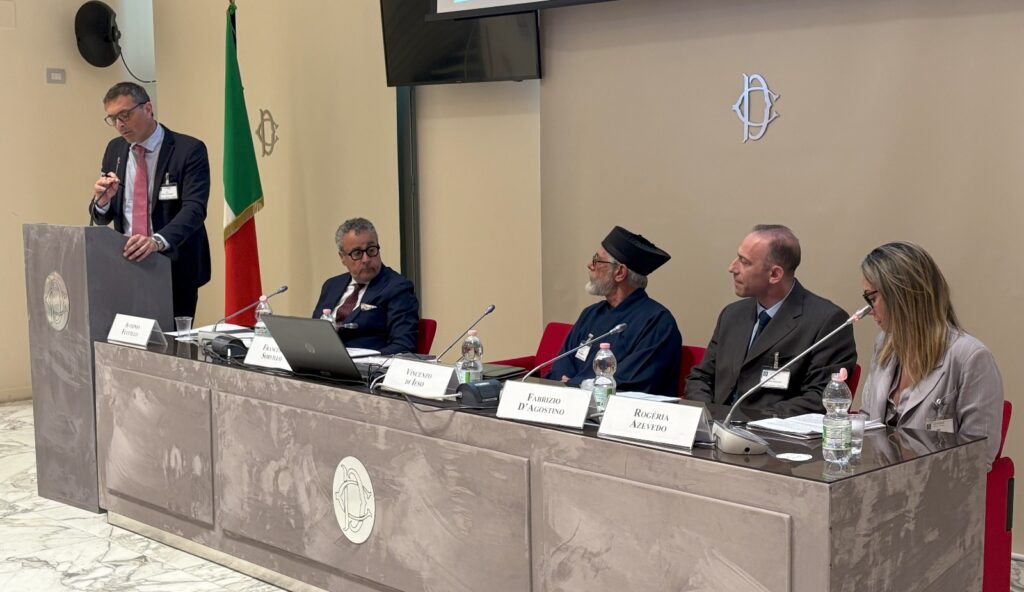
Representatives of the religious communities then took the floor, including:
- Yassine Lafram, president of the Union of Italian Islamic Communities (UCOII);
- Fabrizio D’Agostino, spokesperson for the National Church of Scientology of Italy;
- Vincenzo di Ieso, president of the Taoist Church of Italy;
- Pastor Emanuele Frediani, president of the Apostolic Church in Italy;
- Dr Pietro Garonna, representative of the Government of the Pentecostal Christian Church and Union;
- Pastor Roselen Boener Faccio, president of the Sabaoth Church.
The problems of each community
The representatives’ speeches highlighted the problems their communities encounter in everyday life despite the broad freedoms guaranteed by Articles 8, 19 and 20 of the Italian Constitution.
These problems range from urban planning restrictions imposed by some regional administrations on the construction of places of worship to discrimination based on prejudice, misinformation and the difficulties that new religions encounter in their attempts to make themselves known and participate in public debate.
What can be done?
There are several obstacles inherent in the process of reaching an agreement with the state: the need for recognition of the legal personality of the religious body, the requirement of representativeness, the slowness of the political process and, perhaps most importantly when it comes to new religions, the preconceptions or ideological hostility that can make it difficult to obtain the necessary political consensus. This explains why, in 41 years, only 13 denominations have managed to sign an agreement with the Italian State.
Prof. Fuccillo, thanking the National Church of Scientology of Italy for organising this second conference, called for the creation of a body made up of new religions that could act as an interlocutor with the State. Fuccillo emphasised that belief has constitutional value and that while multi-religiousness is now an established fact, freedom of religion has yet to reach its full form.
The path towards the fulfilment of this fundamental right will have to address and bridge the inappropriate gap that still exists between the enlightened Articles 8, 19 and 20 of the Constitution and the anachronistic 1929 Law on “permitted religions”, which still maintains a hierarchy between faiths that is not in keeping with the social reality of a state that wants to be secular and inclusive.
